

Lost in myth: Where’s your “Happily Ever After”?
Once upon a time, you believed that you were very special. That you’d grow up to make a difference in the world, be paid handsomely for doing so, find true love, have some equally special children, and live happily ever after. Unfortunately, life hasn’t worked out quite as good as the fairytale. So, were we all lied to? In Lost’s “Happily Ever After” Desmond discovers that there is a reality where all his dreams can come true. So where is this reality and do we need to be as special as Desmond to get there?
First of all, let’s be realistic. The fairytale life is just that — a fairytale. Recent films like Shrek and Enchanted have poked fun at how unrealistic these fairy stories are and how they might play out in the real world. Still, this doesn’t mean that these stories should be dismissed outright. Just like any tale featuring a journey, challenges, magic and monsters, they are myths. While one definition of a myth is that of an untrue belief, another is that of a story filled with age-old truths that serves as a metaphor for how life really works. Funny how both “fairytale” and “myth” have come to have both positive and negative connotations. But just as Lost teaches us, perhaps they actually contain aspects of both. Really, it just depends if you take the stories literally — just on the surface level — or look deeper to their true metaphorical message.
Many of the problems we have in society today are due to how people interpret their culture’s mythology. Some people take the stories found in the Bible, Koran, Torah, their religion, folklore, or other cultural tales literally. Others look at their metaphorical meaning, while others, only seeing the surface stories, ignore them all together. These differing perspectives have led to wars, massacres, clashing ideologies, genocides, proselytizing, entitlements, xenophobia, prejudice, and countless other issues. Jonathan Swift noted the irony in Gulliver’s Travels, where he depicted the small-minded Lilliputians as fighting a war that’s lasted longer than anyone can remember. The cause of the war? An argument over which is the proper side of an egg to crack open — the small side or large side? Due to their disagreement, a war raged on claiming countless lives. Dr. Seuss made a similar analogy with The Butter Battle Book — the battle over which side to butter your bread. While it all seems silly, the point is that there’s really never a good reason to start a war, but especially when it’s over differing ideologies, which almost every war is ultimately about.
While mythologies all have their messages to tell, I think that when we look at them too literally, they can get us into trouble. Most of us first hear fairytales as kids though, when we aren’t old enough to understand their metaphorical messages. So, we often internalize their stories instead, resulting in generations that feel like entitled little princes and princesses. I’m glad to see that stories like Shrek, Wicked, and even Harry Potter are updating these myths to make them a bit more in line with society today. Lost is doing this too, and that’s why I think it’s so important and so much more than just a show.
I heard once that the phrase “happily ever after” was owned by Disney, and that if you wanted to publish something that mentioned it, you’d first have to get permission and then pay whatever fees they demanded. While I’m not sure if it’s true, it makes a lot of sense in our society. Of course our “happily ever after” should be owned by a corporation. It seems that corporations own our lives and whether or not we should be happy. Surely, you too have been brainwashed to believe that you need to own an iPhone to be happy, or buy “green” products, or smell great with the latest body wash. Corporations own us. They own us because most of us bought into the fairytale that we could live happily ever after. To get there, we apparently need to drive cars that everyone will stare at in awe, download hundreds of apps to make our lives easier, and buy gizmos that enable us to do mostly time-wasting tasks much more efficiently, etc. etc. Of course, it’s our choice to decide whether or not to buy these things. But what kind of choice is it when not having these things makes you an outcast — shunned by society?
All of the choices that we have collectively made have led us to the society we now live in. One where happiness is thought of as something that must be bought and there is no longer any time left to actually think about what that means. But surely, somewhere, in some other dimension, there exists a universe where we, and all our ancestors, all made different choices, and where those choices led to still other, different choices. Assuming that there is a version of you that exists in this world, how different would this alternate you be from the you that exists in our current world? Interestingly, this question is exactly what Lost‘s “Happily Ever After” episode brought up.
“Happily Ever After” was all about choice. Claire chooses not to ride with Desmond after he asked, and that choice led to severe repercussions. Desmond gives Charlie the choice of whether to stay in the bar or come with him. “It doesn’t really seem like a choice,” Charlie complains, to which Desmond replies, “There’s always a choice, brother.” Daniel Faraday believes he made a choice in another timeline to blow up an atom bomb. He believes it may have been the wrong choice. At the end of the episode, Desmond chooses to peacefully go with Sayid.
In quantum physics, there’s a theory known as the many-world’s theory which states that for every option that is possible to make, there exists an entire parallel universe where that option was chosen. Should we make that choice, we leap into that universe — unbeknownst to us — where everything is a little bit different depending on the effects of that choice. This is not a fairytale brother; this may be how our reality really works. You are not really moving through time. You are simply leaping into different parallel universes. We are all. Right now, there exists a universe where I did not write this article, and therefore, you are not reading it. But, if it contains information that, even in some very slight way, will somehow influence your choices (even if it’s because you decide not to agree with its premise), chances are that you are reading some other article in that world that will yield the same or similar result.
Getting back to Claire, in her flash-sideways, she chooses not to ride in a car with Desmond. While it wasn’t necessarily a wrong choice, why would she make it? Perhaps she had once heard a story about a well-dressed man who approached a woman and kidnapped her. Perhaps she had a bad experience with a Scotsman once. Perhaps her mother taught her that she should always be independent and never rely on people for anything. Who knows what little things influence us to make the decisions that we do? The point is though, that we make them. And every choice we make helps shape the person that we are becoming. However, there also exists a person that you want to be — that your soul (or your connection to the collective energy of the universe) ultimately wants you to become. And for that reason, when you make choices that are not in line with that, the world course corrects to throw you another opportunity that will hopefully yield the intended result.
For whatever reason, Claire’s destiny seems to be intertwined with Kate. So while Claire chose not to ride with Desmond, there is probably another flash-sideways universe where she had. But even in that universe, there would probably have been another scenario that connects her to Kate because it seems to be part of her destiny. Perhaps Kate will help her see the values of raising a child, and from Claire, Kate will learn the same. Similarly, in both timelines, Charlie has a drug problem. Although he got over it in one, it remains to be seen what will happen in the other. But since Charlie’s higher self is drug-free, the universe will continually challenge him to grow into that person. While we all have choices, there are certain markers that are set in stone. These points are built into every reality — when we are born, who are parents will be, what major challenges we will face, who we can fall in love with, when we will die, etc — and these will not change. They are constants.
In “Happily Ever After” we learn that love is the constant that connects the parallel realities. In this way, Charlie is connected to Claire, Desmond with Penny, and Daniel with Charlotte (who was eating a chocolate bar just as when Daniel last saw her when she was a child, a nod to the illusion of time and space). What Lost is telling us is that love transcends the illusion of time. That it exists in all dimensions and is ultimately something our souls are meant to experience. Why? Perhaps because that feeling elevates us to a level that gets us in touch with the highest version of ourselves. The version that would go on a dangerous voyage, battle monsters, require the aid of friends and mentors, and slay a dragon to experience love — the best version of who we are.
That’s the part of the fairytale that we should incorporate into our collective psyche — the inspiration to challenge ourselves for a greater good. As opposed to the prince/princess entitlement part — that’s a message for our physical, materialistic, lower selves…the part that our soul wants us to shake free from…the part that metaphorically represents hell. When you get stuck in that perspective, it can be hard to get the loftier messages. And the more choices you make that reward the physical, fleeting part of yourself, the more challenging it will be to break free from them. But as I’ve said, there is nothing wrong or right about either choice. One is simply about making the best of the illusionary world we live in, the other is about wanting to go beyond it.
Whether or not the Lost characters turn out to be stuck in a dream, a parallel timeline, a simulation, hell, purgatory, or a mystical island controlled by gods, the lesson is that they are existing in a realm that isn’t real. For those who haven’t caught that message with the countless references to The Wizard of Oz and Alice In Wonderland, they practically hit us over the head with it in “Happily Ever After.” When Charlie begins to tell Desmond why he knows that he isn’t happy with all his materialistic treasures, Desmond guesses, “Because none of it’s real?” When Desmond catches up to the runaway Charlie in the hospital, Charlie tells him, “This doesn’t matter. None of this matters.” When Daniel explains his dream to Desmond, he laments, “this wasn’t supposed to be our life. What if we had some other life but for some reason we changed things.”
While on the surface it seems that they are speaking about the flash-sideways, again, this is the literal interpretation of the story. What they are really talking about is physical reality period. Our reality. But like any good mythology, Lost can’t just tell us this. It has to hide its messages under symbolism and archetypes in hopes that they will sneak past our conscious minds into our deeper, subconscious understanding — a place that influences our future choices. Choices we make without really knowing why. But this is why. Star Wars is why. Fairytales are why. The beliefs you have about yourself, your culture and your reality are why. But none of them may even be true. Most of us live life thinking that we are moving through time and that everyone is experiencing it the exact same way. But if this isn’t the case, then everything we know about reality is wrong. Therefore, our choices have all been based on bad information.
Flash-sideways Desmond believes he’s never met Eloise Hawking before. As the omniscient viewers, we know that he has. What is the culprit that has created a curtain that has prevented Desmond from knowing that he and Ms. Hawking, now Ms. Widmore, have met before? It is this new dimension. This parallel time. In fact, Eloise tells him and us this, but it was so cleverly worded, few of us noticed it. Flash-sideways Eloise says to Desmond, “It’s a travesty that we haven’t met before. Well, it’s about time.” Like everything else on Lost, this wording is no accident. It is a hint as to the reason they haven’t met — time is the reason. The illusion of time. If we could see how reality really works — how everything that ever has happened, could’ve happened, is happening, or could ever happen is happening right now, then we wouldn’t need to play this game called life. The man behind the curtain would be revealed, and would be seen for who he truly is, someone just pushing a bunch of flashy buttons and gizmos to try and distract us from the real world.
Right now, I’m not sure if we live in the timeline where it’s even possible for us to get to this unveiling of reality, or as it’s more Biblically known, this apocalypse. For the record, apocalypse actually means, “unveiling.” It is the time when we are no longer living in the illusionary world and the true world is revealed to us. This is where we ultimately want to go, but I’m not so sure that we live in a timeline where we’ll be getting there. We may have to start all over again. On Lost, island-reality Widmore is convinced that he too may live in a doomed timeline, but believes that it may be possible for him and those close to him to leap to a parallel one. So, being that this is a theme on Lost, is it possible for us to do the same? Can we leap to the dimension where we, as a people, made different choices leading to a different outcome?
Lost may still yield clues to this possibility, for now though, I’d say that it is entirely possible, and that you don’t need to be gifted with Desmond’s powers to withstand high electromagnetism to get there. The high electromagnetism thing is all just symbolic for having a high vibration — a high soul, someone who is close to being the best version of his or herself — in other words, the archetypal messiah figure, who Desmond most definitely is. He has sacrificed himself by turning the failsafe key, he was reborn, and then found love — the feeling closest to the heavenly realm. He became so in tune with his surroundings, he was able to see visions of how the illusionary realm was playing out. This relates to our gut instincts — the knowing without consciously knowing, but knowing on another level.
Once you reach this level, you become like Neo in The Marix — able to see the world for what it really is. Through Lost‘s archetypes, you become like Desmond, who, now aware of his ultimate destiny, is able to go with the flow and play his role without anymore suffering or struggle. This is probably why he simply agrees to go with Sayid at the end of the episode. Because he now realizes that he no longer needs to struggle and that whatever happens will lead him towards fulfilling what he is meant to do. As someone from my Lost Meetup group said, “Desmond is now moving through God’s channel.” Yes, because while a hero suffers, he suffers only so that he can get to a place where he can rise above the illusionary world. Rise above the brainwashing and the need to collect material possessions for happiness. Rise to a place where he can see that all you need is love — it is the only constant that matters.
This is ultimately where we are all meant to go. And, we will all eventually get there. Some quicker than others. Perhaps those that do will experience some kind of Rapture during the end days and be able to skip over the woeful times that may lie ahead for everyone else left behind. But even this seems to be a myth that isn’t meant to be taken literally. I think that we can jump to our sideways flash. And it will not require electromagnetism, a particle collider at CERN, meeting up with a returning messiah, or a mystical island. All it will require is the choices you make about who you are.
So decide who you most want to be and make choices in line with that ideal. Then, watch as the events surrounding your life begin to come together to make that version of yourself happen. Again, there is no wrong choice. Some choices may require more challenging lessons than others, but if you are someone who loves materialistic pleasures then the benefits of the more spiritual choices may not be a benefit for you. Simply put, as Eloise said to Desmond, “you just aren’t ready yet.” Sideways Desmond is someone who loves materialistic pleasures and longed for the approval of a powerful man. He lived a life without love and yet, this didn’t bother him in the least until his consciousness intertwined and was influenced by his higher, island-reality self. This version of Desmond was so much more in tune, its impact stayed with the more materialistic version of himself even after it had leapt back to its own dimension.
Perhaps when we dream, or listen to empowering music, or watch an inspiring movie, we too get in touch with that higher version of ourselves. And perhaps enough of it stays behind to actually manipulate our chemistry, or cause us to leap to a dimension more aligned with our higher self. Anyone can do this, you don’t have to be Desmond, a messianic archetype, or even a hero. Anyone can make choices towards the best version of him or herself.
When I began writing this column today, I was a bit taken aback by how I ended the first paragraph. While I sometimes end my first paragraph with a teaser question, this was the first time I ended it with a question that I myself did not yet know the answer to. I wasn’t really sure what was involved in getting to this other reality and whether or not we did indeed have to be as special as Desmond to get there. But, like much of what I write, I figured I’d just be open to an answer and hope it would be given to me as I made this journey to get to the end, hopefully being able to tie together mythological themes and this past episode of Lost in the process.
While it took a while to get there, I think the answer did in fact come to me. And I tend to find that the columns that I write that resonate the truest for me are the ones that I go into without a definite plan. It’s that leap of faith thing again. Another theme that shows up quite a bit on Lost.
Many years from now, I wouldn’t be surprised if Lost turns out to inspire its own religion, perhaps even with millions of followers. While many might consider the following statement to be blasphemous, because the show is based on universal wisdom, I do not see its messages as being of any lesser value than any other religion. My only hope however, is that the followers of this faith look to the mythology, symbolism, archetypes, metaphors, messages, themes, and hidden wisdom of the show and just use the story to string it all together. In other words, I hope they don’t take the story too literally. Because then the beliefs, customs, and practices it would lead to, would really be no better than any other fairytale. And that’s what got us here to begin with.
Marc Oromaner is a New York City writer whose book, The Myth of Lost offers a simple solution to Lost and uncovers its hidden insight into the mysteries of life. He can be contacted in the discussion section of The Myth of Lost Facebook page.
The Myth of Lost is available on Amazon and barnesandnoble.com.
Latest posts by Marc Oromaner (Posts)
- The long lost instruction book to the game of life - June 24, 2014
- Warning: Spirituality can be hazardous to your health & wealth - April 17, 2014
- Was 2012 an epic fail? - December 30, 2013
- 5 steps to uncover your destiny - September 20, 2013
- Evolution has been in The Bible all along - August 18, 2013
 Print This Post
Print This Post

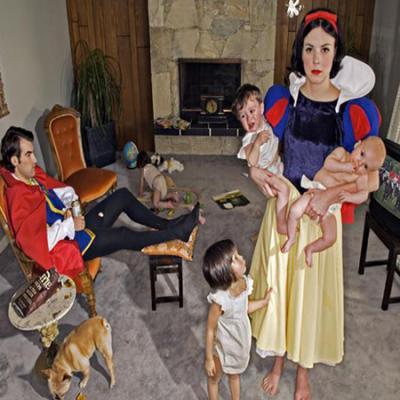
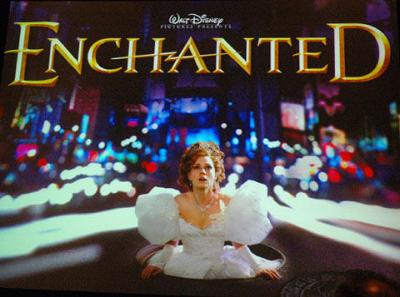
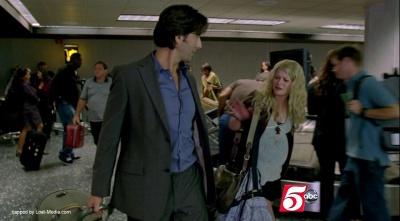
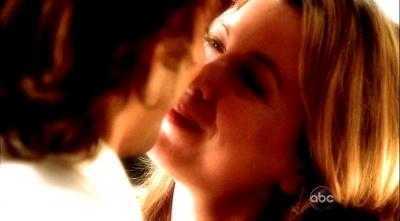
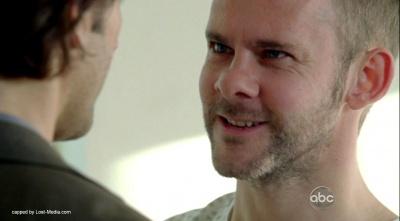
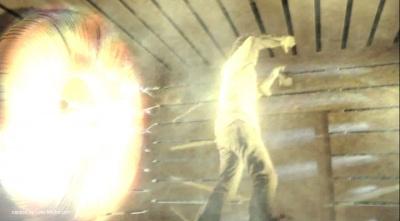
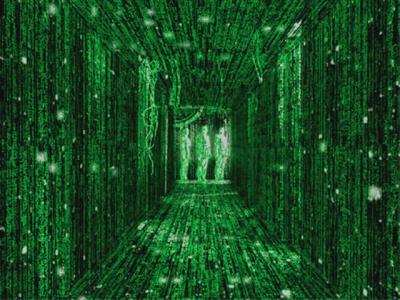
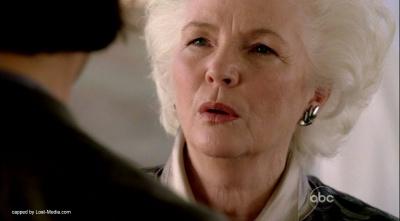



Discussion Area - Leave a Comment